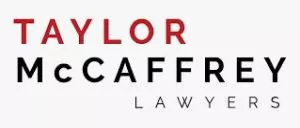This Fall, Manitobans will have the chance to exercise their right to vote in the provincial election. The gap of time between elections may cause employers to forget or overlook some of their statutory obligations that apply around election time. This seems a good a time as any to brush up on those obligations.
What Legislation Applies?
The legislation we will focus on is The Elections Act ( the "EA", the latest version available here). Please note that the EA is concerned only with elections of members to the Legislative Assembly in Manitoba. The Canada Elections Act applies to a federal election.
Time Off to Vote
Generally, the EA grants employees the right to 3 consecutive hours free from work to vote.
The employee has to be eligible to vote. This means they have to be at least 18 years old on election day, have resided in Manitoba for at least 6 months immediately before election day, and be a resident of the electoral division in which the election is being held.
These hours free from work must be during voting hours. Every regular voting station must be open at 8:00 a.m. and close at 8:00 p.m. on election day.
The implication is that, if an employee eligible to vote is scheduled to work on election day from 9 a.m. to 5 p.m., there is no requirement to provide that employee with any time off during their working hours since they will have 3 consecutive hours free from work to vote (from 5 p.m. to 8 p.m.).
Compared to an employee whose working hours on election day are 10 a.m. to 6 p.m. The employee has two windows of time to vote during voting hours – 8 a.m. to 10 a.m. and 6 p.m. to 8 p.m. – neither of which are long enough to meet the 3 consecutive hours required by the EA.
In the case of the employee working from 10 a.m. to 6 p.m., what is their employer's obligation in terms of providing time off work? Does the employer have to grant them the full three (3) consecutive hours off during the employee's scheduled hours of work? No. The employer's obligation, in this case, would be to give as much time as needed so that, ultimately, the employee gets three 3 consecutive hours free from work during voting hours. And further, the employer has the right to choose how to accomplish that. So, in theory, the employer could give the 3 hours off from 1 pm to 4 pm, but it may prefer to reduce the employee's time away from work and instead allow the employee to start work an hour later or leave work an hour earlier.
Finally, to the extent an employer is obliged to provide some time off from work in order for the employee to have 3 consecutive hours to vote during voting hours, that time off work must be paid time off. An employer must not reduce the pay of an employee, or impose any other penalty, for time taken off work to vote in accordance with the EA.
Time off to Otherwise Participate in Elections
There will always be employees who are not only eager to vote but want to get involved in the broader election process. Where this is the case, it gives rise to broader considerations (and obligations, potentially) for employers.
The EA includes provisions that require (subject to some important exceptions) employers to grant a leave without pay to an employee who is a candidate, appointed as an election official, or named as an election volunteer by a candidate or registered political party.
If the employee falls under any of those categories and makes a request in writing for time off at least five (5) days before the time off is needed, the employer must grant the leave. Hopefully, the employee provides greater notice, but if they do it is only as a courtesy and not out of any obligation.
The written request from the employee must include a reference to the fact that the employer does have a right to seek an exemption from its obligation to provide the leave by applying to the Manitoba Labour Board within only three (3) days of receiving the request – not a lot of time. The Board will hold a hearing during which the employer resisting the leave must establish how granting the leave would be seriously detrimental to the employer's operations. This means that an argument that the employee's absence will be detrimental to the operation will likely not succeed since the EA says that the detriment must be "serious".
Depending on the position under which the employee qualifies for such leave and the type of election (e.g. fixed-date or called), the EA sets out the parameters as to how early the leave could begin and the latest it can run. During the leave, employees can continue to contribute to benefit plans for pension, medical, or other benefits, as long as they make a written request and pay both their and the employer's contributions or premiums.
At the end of the leave, the employer must reinstate the employee to their previous position or a comparable one with no less pay and benefits. The employment during the leave is considered continuous for vacation entitlements and benefits. The employer cannot take adverse actions against the employee due to the leave, such as dismissal, layoff, suspension, demotion, or giving less favourable conditions of employment or reducing benefits related to the employment.
Take Away
Besides the parameters of who, how and when employees have a right to time off around election time, this exercise of reviewing those parameters under the EA serves as a reminder that employers' employment-related statutory duties can arise from legislation that employers may not need to consider regularly. We are used to considering The Employment Standards Code, The Workplace Safety and Health Act and The Human Rights Code, but other legislation may be out there (like the EA) that sets out obligations in scenarios that, by definition, do not arise every day.
The content of this article is intended to provide a general guide to the subject matter. Specialist advice should be sought about your specific circumstances.

